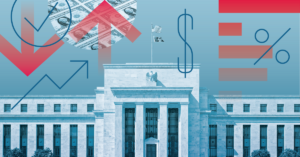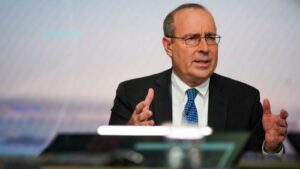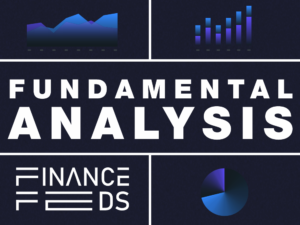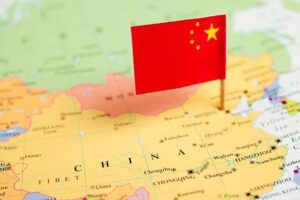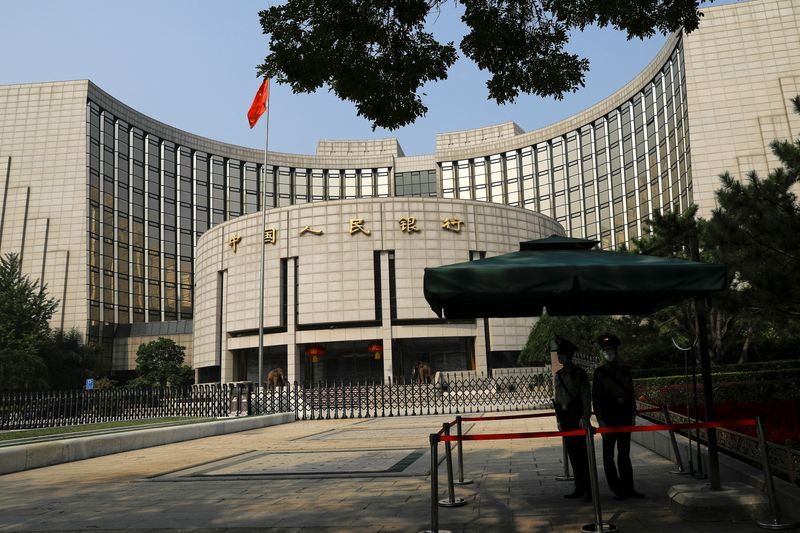
<!-- HTML_TAG_START -->Paramilitary police officers stand guard in front of the headquarters of PBOC in Beijing<!-- HTML_TAG_END --> <span class="caption-separator yf-8xybrv" data-svelte-h="svelte-nxhdlu">·</span> <span>Reuters</span>
BEIJING (Reuters) -China’s central bank said it is likely to cut interest rates from the current level of 1.5% “at an appropriate time” in 2025, the Financial Times reported on Friday citing comments the bank made to the newspaper.
The remarks by the People’s Bank of China align with policymakers’ commitment made last year towards creating a more market-driven interest rate curve. Analysts anticipate it will make further changes this year to ensure credit demand is more responsive to monetary policy moves.
The PBOC said that it would prioritise “the role of interest rate adjustments” and move away from “quantitative objectives” for loan growth, the FT reported, as it embarks on a programme of interest rate reform that government advisors have called “an arduous task”.
“Aligning with the requirements of high-quality development, these quantitative targets have been phased out in recent years,” the bank said.
“The PBOC will pay more attention to the role of interest rate control, and improve the formation and transmission of market-orientated interest rates,” it added.
China’s 10-year and 30-year treasury yields both hit record lows on Friday on expectations of fresh monetary easing.
The economy’s main rate is its seven-day reverse repo rate, which it last cut from 1.7% to 1.5% in late September.
The central bank’s comments underline a broader plan to overhaul its policy framework to transition the world’s second-largest economy away from state-directed bank lending.
Analysts say the role of capital markets in financing growth also requires deep structural changes in the economy alongside interest rate reform.
As part of that process, China’s governing Politburo last month eased the nation’s monetary policy stance for the first time in some 14 years to “appropriately loose” from “prudent,” a stance it adopted in 2010
During a high-level economic agenda-setting meeting in December, China’s top leaders vowed to cut interest rates “in a timely manner” and reduce the amount of capital banks must hold in reserve, as part of a broader effort to spur lending and investment in the ailing economy.
The policy announcements come as China braces for more trade tensions with the United States as Donald Trump returns to the White House.
China’s economy showed an over-reliance on manufacturing and exports last year, with household demand disappointing as a severe property market crisis erodes consumer wealth and most government stimulus goes to producers and infrastructure.

